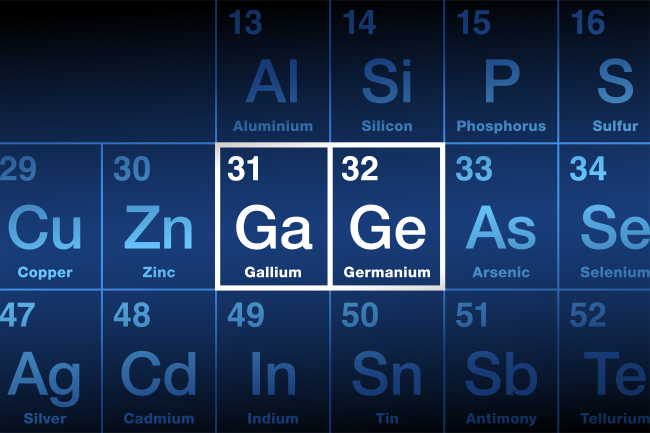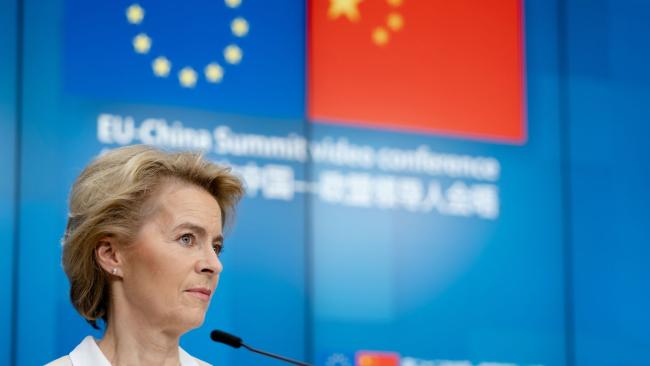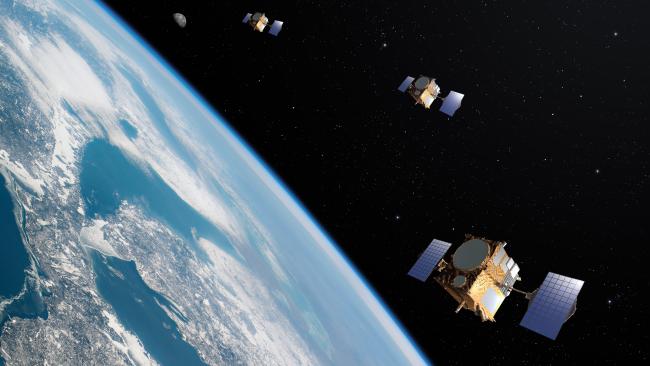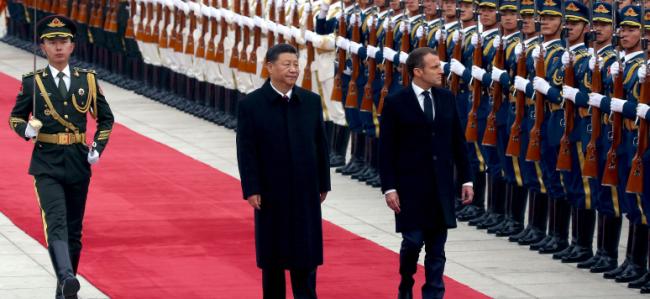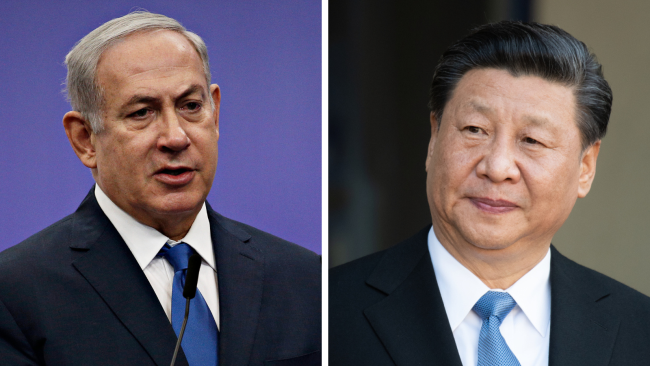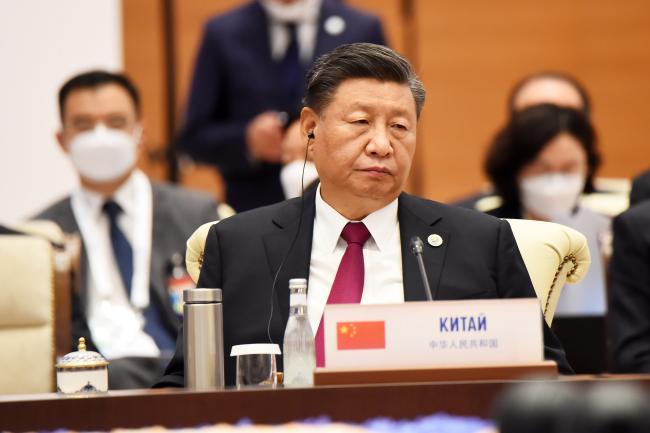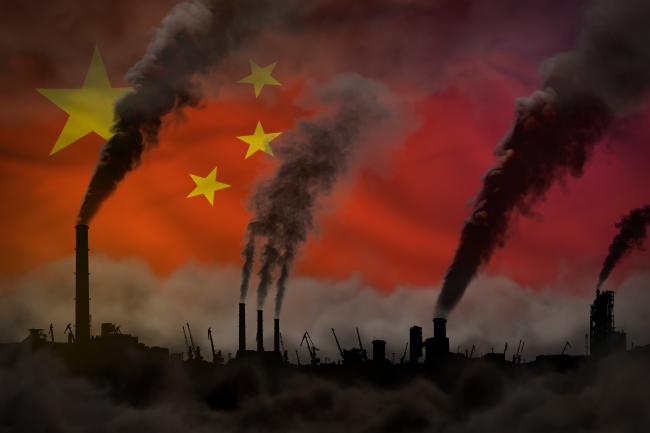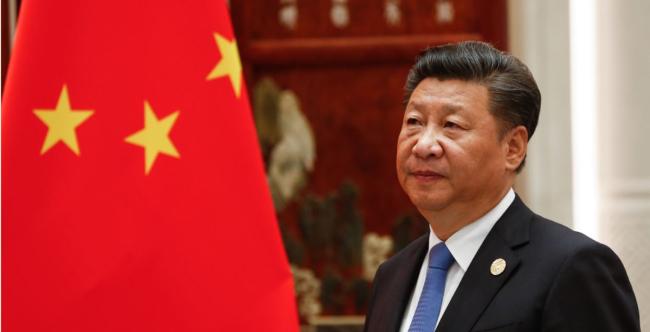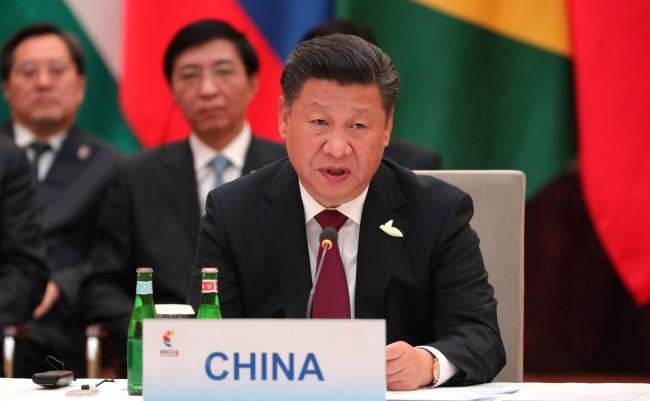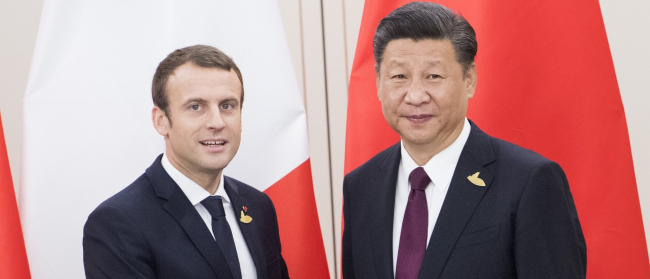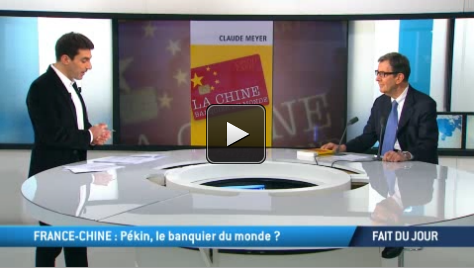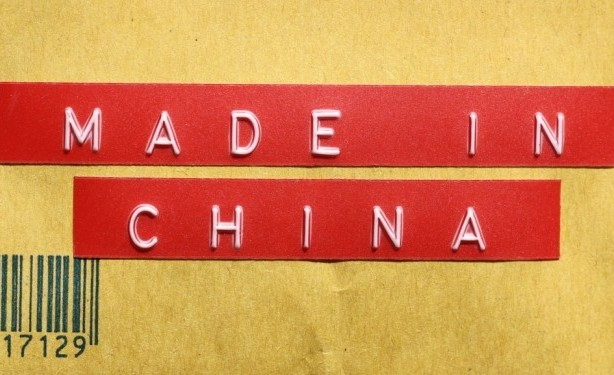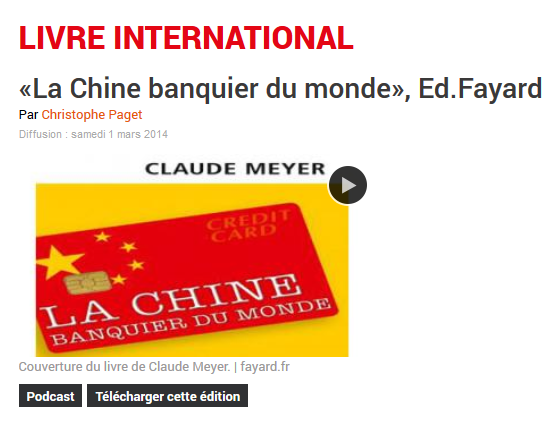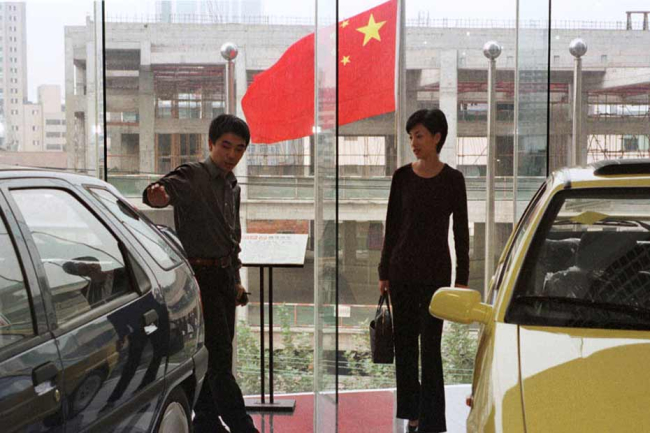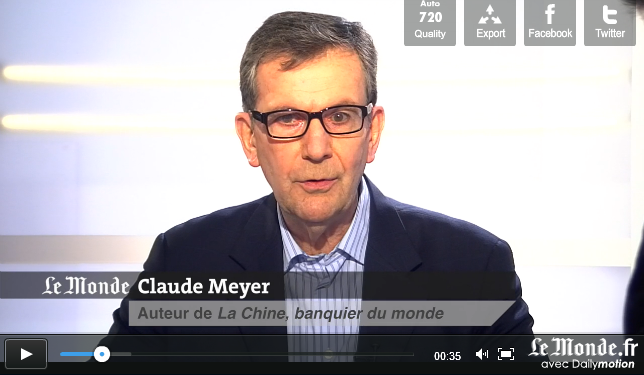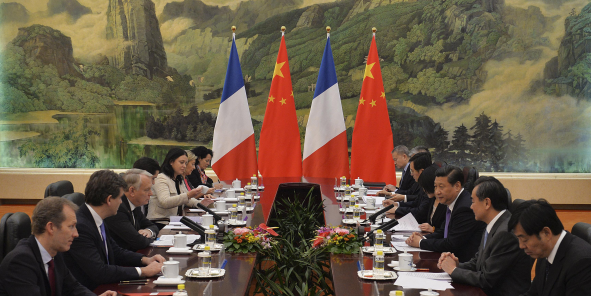China
China's diplomatic, military, economic and technological assertiveness, as well as its growing rivalry with the United States, raise certain apprehensions among its neighbors and Europeans alike.
Related Subjects

China’s Weaponization of Gallium and Germanium: The Pitfalls of Leveraging Chokepoints
China’s recent announcement of raw material export controls highlights important pitfalls of weaponized interdependence and demonstrates that not all chokepoints are created equal.
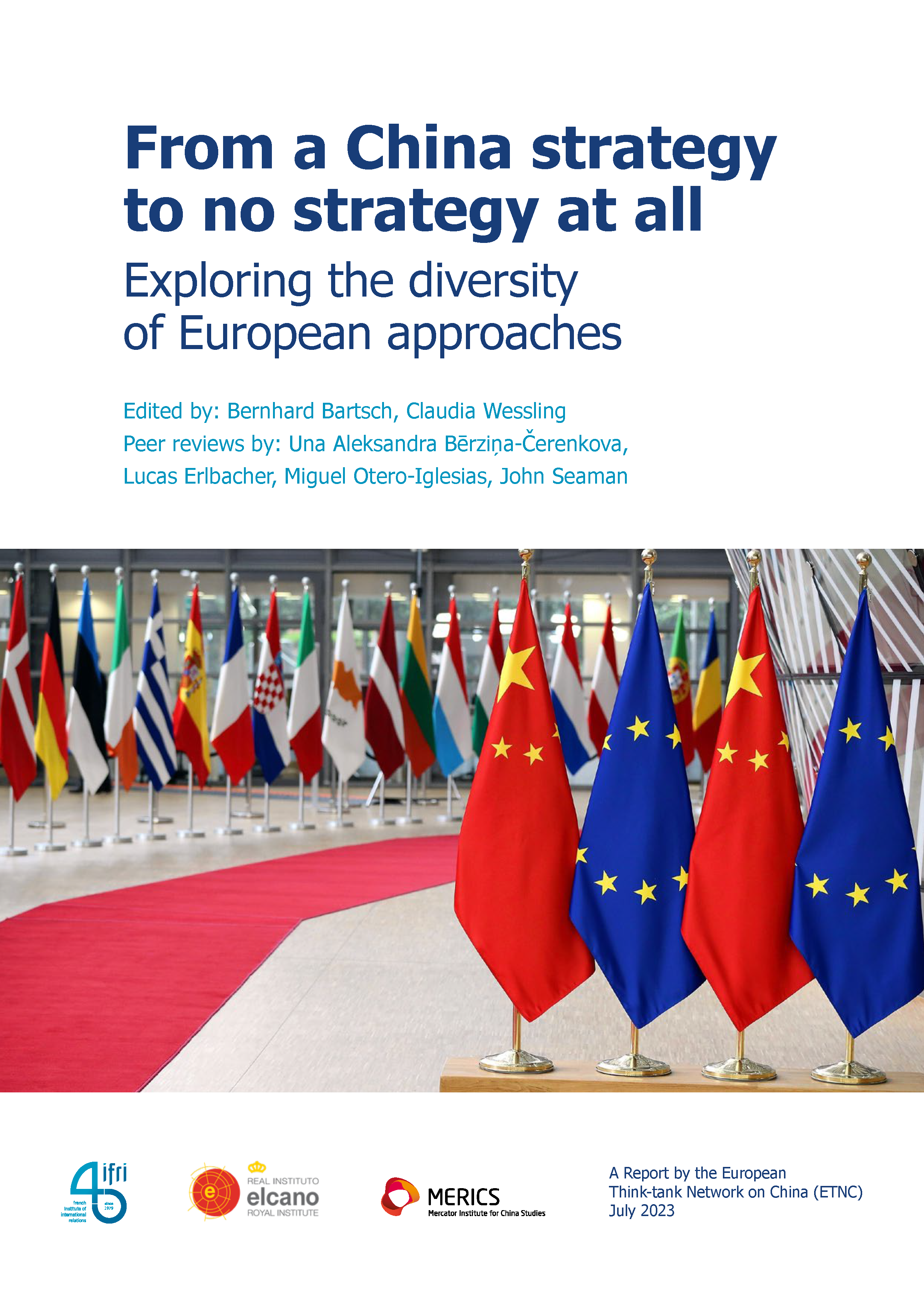
From a China strategy to no strategy at all: Exploring the diversity of European approaches
While there is now new momentum in the relationship between Europe and China, considerable variation remains in approaches across the continent, from clear-cut strategies to more ambiguous policies, complicating a common European position.

Türkiye’s Stifled Ambitions
As its elections have unfolded this spring, Türkiye has again shown itself to be symptomatic of the times. Across the world, numerous political regimes oscillate between democratic forms of government and an authoritarian concentration of power; impressive periods of growth give way to inflation and recession; and international deregulation gives rise to widespread diplomacy in an effort to juggle a myriad of shifting political loyalties. Faced with the war in Ukraine, Ankara is playing a strong hand by enlarging its areas of presence and intervention. Türkiye is more important to its partners than ever, independent of its eventual domestic trajectory.
Western discourse predicted the advent of Chinese dominance in the very short term, but events have taken a rather different turn. The drivers that enabled the unprecedented growth of recent decades seem to have run out of steam. Moreover, the outcome of Beijing’s economic strategies is still uncertain, in a context shaped primarily by U.S. policies. China’s influence in the future will be considerable, but the direction its rebound will take remains unclear.
For Europeans, the events in Ukraine and the thorny issue of the Sino-American rivalry cannot paper over the other security problems we face: On what common vision of our history and future will we build the Europe of tomorrow? Has drug trafficking already changed the nature of our societies? Can we afford to turn away from instances of destabilization in Africa, from the Horn to the Sahel?
EU's China policy staying on track despite intensifying debate
While French President Emmanuel Macron’s state visit to China is viewed by some to be an exercise in stirring the pot, this does not mean that the European boat has veered off course. The EU is used to robust debate among and within member states, and can take this as another opportunity to affirm their stance on China.
China in the Race to Low Earth Orbit: Perspectives on the Future Internet Constellation Guowang
In April 2021, the Chinese government officially, but rather quietly, established a new state-owned enterprise (SOE) named China SatNet. Its mission: build out China’s “mega-constellation” program for low Earth orbiting internet satellites, known as Guowang (“national network”).
Emmanuel Macron Visits China: Stability in the Taiwan Strait Should be a Priority for France
President Emmanuel Macron will visit China from April 4 to 8 for the first time since 2019 and five months after his meeting with Chinese President Xi Jinping, on the sidelines of the G20 summit in Bali.
The Sino-Russian Partnership: Assumptions, Myths and Realities
When Xi Jinping and Vladimir Putin announced a “no limits friendship” at their February 2022 summit, the message was that Beijing and Moscow had reached a new peak in relations.
Israel and China, a Test of Loyalty for the United States?
Like the Gulf monarchies, Israel has strengthened its economic cooperation with China since Xi Jinping came to power in 2013, leading to an influx of Chinese capital, whether in Tel Aviv's high-tech sector or in Israel's port infrastructure.
Whither China After 10 Years of Economic Policies Guided by Xi?
As the 20th national congress of the Chinese Communist Party (CCP) draws closer, this is an opportune moment to appraise China’s economic achievements over the past decade under President Xi Jinping’s guidance and to identify the challenges the country will have to address during the next five years.
The European Union Industrial Strategy: Reconciling Competition and Geoeconomic Challenges
The EU’s basic assumptions, on which it grounds its economic and trade power, are being steadily cast into doubt. The EU’s main trade partners, the US and China, increasingly set their sights on securing their supply chains, which may further a potential decoupling.
Ambitious New Climate Goals Shouldn't Let China off the Hook
Xi Jinping’s announcement of carbon neutrality is impeccably timed, but the hard part lies ahead.
The Belt and Road: China's "Community of Destiny" for Southeast Asia?
As a frontline zone and a pivot, Southeast Asia is both a testing ground and a showcase of China’s ambitions in developing a grand cooperative scheme. Creating mutually positive linkages is crucial for both partners, if not for the same reasons.
Economy and Diplomacy: China’s two Challenges in the Post-Covid-19 World
Will China rise stronger from the pandemic? A flow of media reports and op-eds have recently flourished, forecasting the decline of the West and the triumph of China on the world stage amid the COVID-19 pandemic. Some have declared the dawn of a “post-Western world”.
Conclusions
In this special issue of Politique étrangère devoted to the proceedings of the conference organized by Ifri on April 10, 2019, at the Grand Amphitheater of the Sorbonne, on the occasion of its 40th anniversary, read the speech by Jean-Yves Le Drian, French Minister of Europe and Foreign Affairs.
The Future of Europe from the US and Asian Point of View
In this special issue of Foreign Policy devoted to the proceedings of the conference organized by Ifri on April 10, 2019, in the Grand Amphitheater of the Sorbonne, on the occasion of its fortieth anniversary, discover the debate moderated by Sylvie Kauffmann between John Allen and Kishore Mahbubani.
The Future of Europe in the Context of Sino-American Competition
In this special issue of Foreign Policy devoted to the proceedings of the conference organized by Ifri on April 10, 2019, in the Grand Amphitheater of the Sorbonne, on the occasion of its fortieth anniversary, discover the speech by Bruno Le Maire, Minister of Economy and Finance.
China’s Belt & Road and the World: Competing Forms of Globalization
China increasingly sees its flagship foreign policy project as a tool for restructuring global governance and a vector for promoting a new form of globalization.
France and China's Belt and Road Initiative
Under President Macron, France has staked out a positive but principled position towards China's BRI.
Between Concentration and Dispersion: A Promising Future for Power Relations
The notion of power has long been a topic of study in international relations. In the coming decade, the evolution of power will be characterized by the dynamics of concentration and dispersion. On the one hand, the global system will be marked by the clash of two superpowers, the United States and China. On the other hand, capacity for individual action will proliferate through information and communication technologies.
Xi Jinping’s Institutional Reforms: Environment over Energy?
During its two sessions (lianghui) in March 2018, the National People’s Congress (NPC) announced China’s most important institutional reforms in the last 30 years. These changes occurred right after Xi Jinping consolidated his power and at a time when stakeholders working in the energy field were expecting more clarity on policy orientations.
La Chine est-elle le banquier du monde ?
Auteur de "La Chine, banquier du monde", Claude Meyer est l'invité de Mohamed Kaci dans le 64' de TV5MONDE. Docteur en économie et ancien dirigeant de banque, Claude Meyer enseigne à Sciences-Po. Chercheur associé au CERI et au GEM, il a publié de nombreux ouvrages et articles sur l’Asie.
Chine. Les handicaps majeurs de l’économie chinoise
Le fait de chausser les seules lunettes de l’économie pour étudier la Chine peut conduire à des erreurs de perspective.
Et encore, dans ce cas-là, il ne s’agit souvent que du commerce extérieur chinois.
Or, le pays non seulement voit des formes de contestation interne à la fois se multiplier et se diversifier, mais ses responsables politiques devront affronter des défis internes considérables.
On connaît les grands chantiers, actuels ou à venir : laissés pour compte du développement, gestion des mégapoles, natalité, vieillissement de la population, systèmes de retraite, corruption, violences sociétales, liberté d’expression, etc.
Comment donc réduire toutes ces vulnérabilités ?
La Chine banquier du monde
Cette semaine, le livre international est planétaire, puisqu’on va parler de La Chine banquier du monde. Qu’est-ce que la Chine achète, qu’est-ce que la Chine finance, d’où vient cet argent chinois qui semble inépuisable ? Réponses avec l’auteur de ce livre, Claude Meyer, docteur en économie, enseignant à Sciences Politiques.


Chine-France, mariage forcé ?
Notre invité est :
Claude Meyer
Economiste, ancien dirigeant de banque et enseignant à Sciences–Po.
Chercheur associé au CERI (Centre d'études et de recherches internationales) et au GEM (Groupe d’économie mondiale)
Il publie La Chine, banquier du monde aux éditions Fayard.


La Chine, banquier du monde ?
Après le tsunami des exportations, voilà la déferlante chinoise sur la finance. A l’instar des autres grandes puissances économiques de la planète, la Chine dispose aujourd’hui de multiples canaux d’influence issus de son pouvoir économique. Les utilise-t-elle pour servir ses propres intérêts géopolitiques ? Y parvient-elle ? La Chine superpuissance mondiale… à quelle échéance ? Et avec quel régime politique ?
Le modèle chinois "est à bout de souffle"
TROIS QUESTIONS A - Claude Meyer, professeur d’économie internationale et auteur de deux ouvrages sur le Chine.
L’INFO. La Chine a dévoilé le chiffre de sa croissance lundi. A 7,7%, il est toujours largement supérieur à la plupart des pays développés, mais reste que ce résultat est le plus bas des treize dernières années. La Chine, désormais concurrencée par ses voisins asiatiques, n’est plus aussi attractive. L’Etat souhaite faire évoluer son modèle vers l’industrie innovante et la consommation intérieure.
La Chine et les paradis fiscaux
Pour Claude Meyer, auteur de « La Chine, banquier du monde », l'internationalisation des grandes entreprises du pays et un système financier inadapté expliquent le recours au système offshore.




La Chine est-elle vraiment la première puissance économique mondiale ?
La Chine est-elle vraiment la première puissance économique mondiale ? La Banque mondiale le dit. En Afrique comme en France, on accueille à bras ouverts les investissements chinois. Mais, Pékin joue sur deux tableaux : acteur majeur de l’économie mondiale et, malgré tout, puissance émergente. Au moment où la croissance économique de l’empire du Milieu faiblit, où va la Chine, où entraîne-t-elle le monde ?
Support independent French research
Ifri, a foundation recognized as being of public utility, relies largely on private donors – companies and individuals – to guarantee its sustainability and intellectual independence. Through their funding, donors help maintain the Institute's position among the world's leading think tanks. By benefiting from an internationally recognized network and expertise, donors refine their understanding of geopolitical risk and its consequences on global politics and the economy. In 2025, Ifri supports more than 80 French and foreign companies and organizations.








